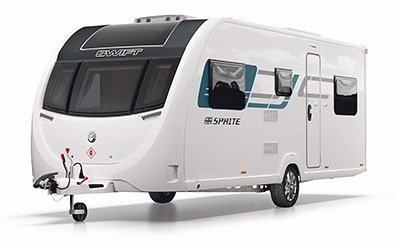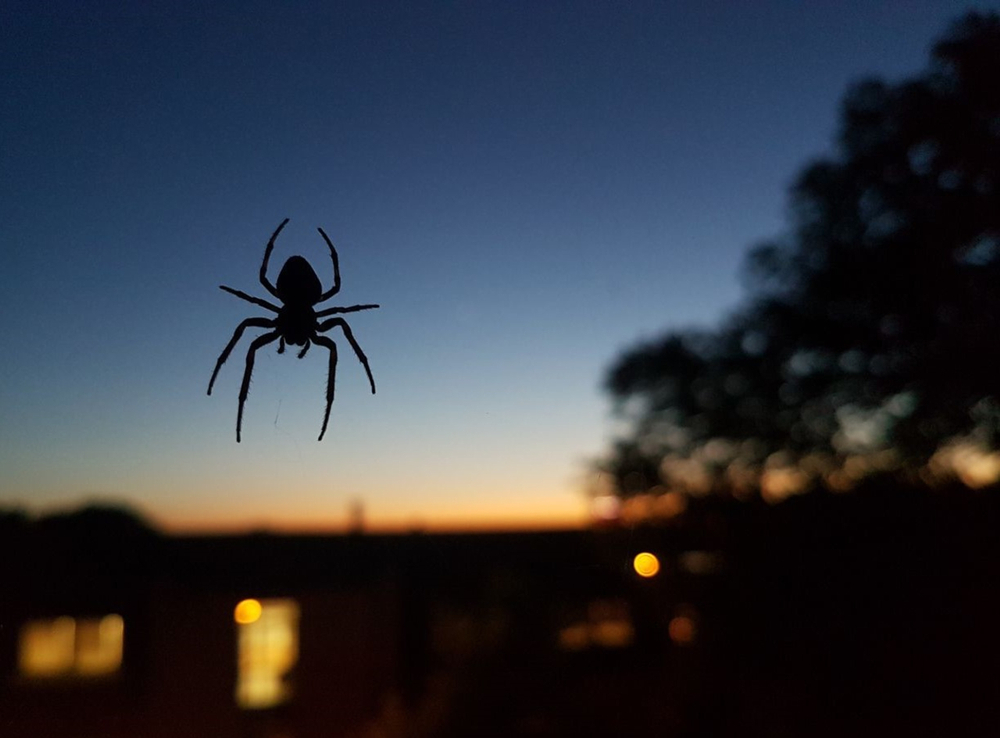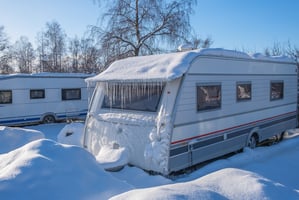Preparing your caravan for winter hibernation
Spiders are one of those unexpected visitors that, unless you’re an insect lover, you don’t really want to find in your caravan! While most are harmless - and actually help control other unwanted insects - their webs, their speed and their sudden appearances can make your space feel less comfortable, to say the least. The good news though is that there are plenty of simple and effective ways to keep them at bay, so that you can relax on your travels without worrying about eight-legged (and hairy-legged, at that) intruders…

Ok, what’s the plan, apart from getting Spiderman to have a word…
Spiders often become active at night because many species are nocturnal hunters that hunt for prey when there's less competition and danger from daytime predators like birds. Artificial lights also draw insects to them, providing an easy food source nearby. Additionally, spiders are attracted to the warmth and shelter of caravans and other homes, and may enter during the night to avoid predators.
The first step, then, is to seal up any entry points. Caravans have lots of little gaps where spiders can squeeze through, especially around doors, windows, vents and underneath. Check carefully for any cracks or openings and use silicone sealant to close them up. For vents, you can fit fine mesh covers - this not only keeps spiders out but also stops other insects from finding their way in. For a more permanent solution, fit insect screens on both the windows and vents. This simple addition provides a strong physical barrier, keeping both insects and spiders out while still allowing fresh air to circulate.
Another key strategy is to keep your caravan as clean and tidy as possible. We’ve all had a shock from picking something off the floor, to find a large one scuttle off into the corner! Spiders are usually only interested in places where there’s a food source - in this case, insects. By vacuuming regularly, wiping down surfaces, and avoiding leaving crumbs or food out, you reduce the chances of attracting bugs in the first place. If you do spot a web, clear it straight away. Spiders are less likely to return if they find their efforts are constantly undone.
Many caravan owners also swear by using natural spider deterrents. Essential oils like peppermint, eucalyptus, citrus or even vinegar are disliked by spiders. You can easily make your own spray by adding a few drops to water in a spray bottle and spritzing along the windows, doors, and corners. Cedarwood products, such as blocks or sachets, also work well and can be tucked into cupboards, drawers and storage areas for ongoing protection. Apparently, Vicks VapoRub works wonders because of the menthol, too - you can put that in the caravan’s corners and on windows.

Do conkers really keep spiders away?
One common old wives’ tales is that conkers (horse chestnuts) can keep spiders out of the home - and by extension, the caravan. Many people place them on windowsills, in corners or near doors, believing that they release a scent or chemical that spiders dislike.
The truth is, it seems there’s no scientific evidence to back this up. Tests have shown that spiders don’t seem particularly bothered by conkers, and in some cases, they’ve even crawled right over them. That said, plenty of caravan owners still like to try it - if nothing else, it’s a harmless and natural option, and some find comfort in the tradition. I have to say, I do think it has worked for me in the past.
If you’re tempted to give it a go, there’s no harm in placing a few fresh conkers in and around your caravan, but it’s best to combine them with the other methods mentioned such as sealing gaps, keeping the caravan clean and using essential oils like peppermint or cedarwood for better results.

Don’t forget that light plays a big role too. Outdoor lights at night attract insects, which in turn attract spiders. If you can, limit the use of exterior lighting when it’s not needed, or switch to yellow 'bug lights’ that are less attractive to insects. Inside the caravan, regularly opening doors and windows to let in fresh air and sunlight during the day makes the space less appealing to spiders, who prefer dark, undisturbed corners.
Remember, you can buy lots of humane spider catchers these days, so having one of these in the living area or bedroom might be a good idea. That way, if one has entered uninvited, you can put it back outside again without hurting it. Just put it quite a distance away though, as it will probably try to return!
Right, that’s good. But, actually, are there any main benefits to allowing the odd, well-behaved, less-quick-on-his-feet-variety small-ish spider in? Just for a while until he’s on his way again?
Well, it must be said, having one or two spiders in your caravan provides a natural, chemical-free method of pest control, as they do prey on other insects that can also be unwelcome, such as flies, moths, and cockroaches (don’t get me started on the latter! As if spiders weren’t enough…) By keeping populations of these other insects in check, spiders can help to reduce the spread of germs and also act as a silent, eco-friendly alternative to pesticides.
So, if you’ve got a spider issue, try combining these methods mentioned and you’ll create a caravan environment that’s far less inviting to spiders. That way, you can enjoy your travels in comfort, without worrying about webs in the corners or an unwelcome scuttle across the floor…







